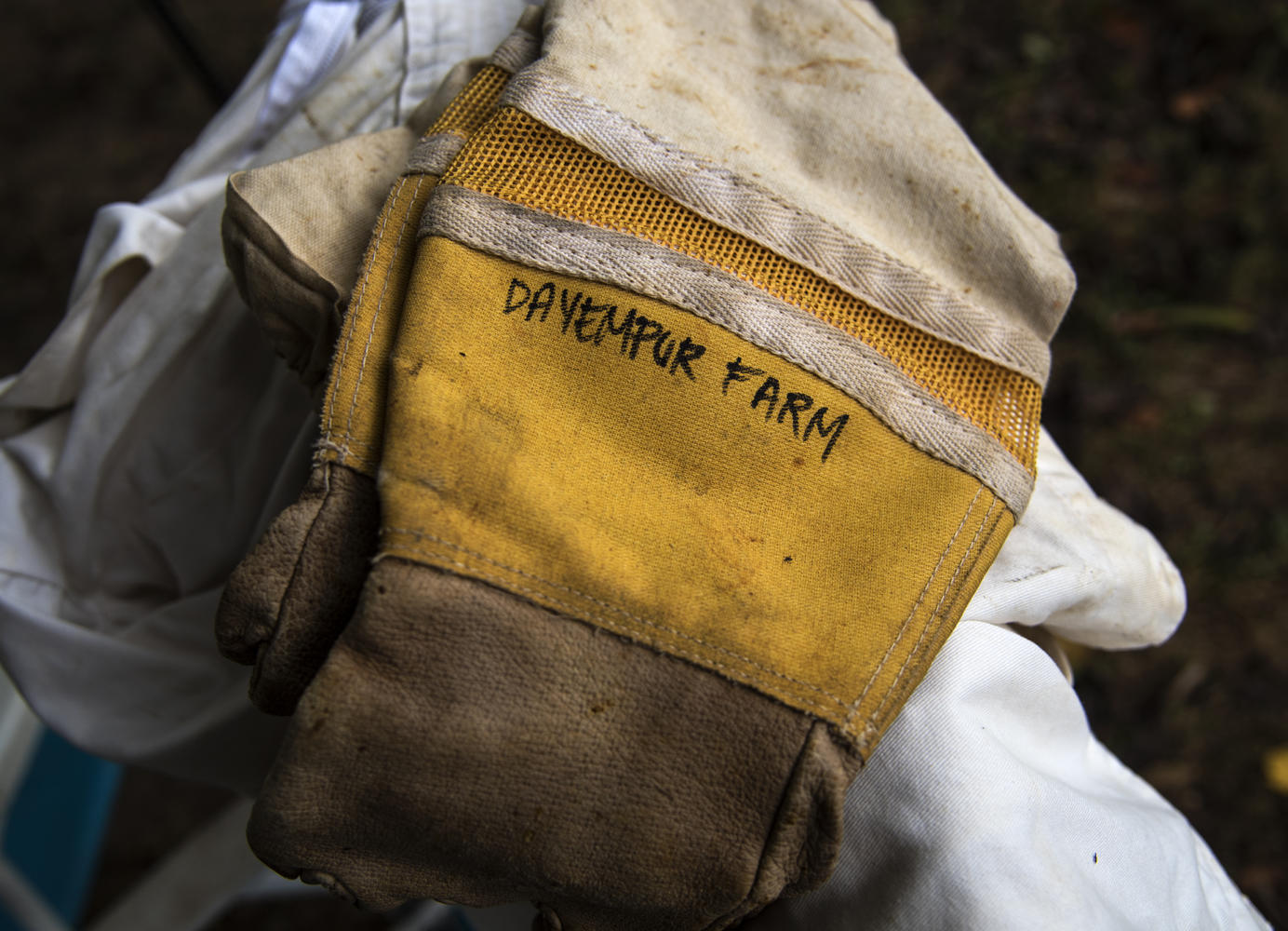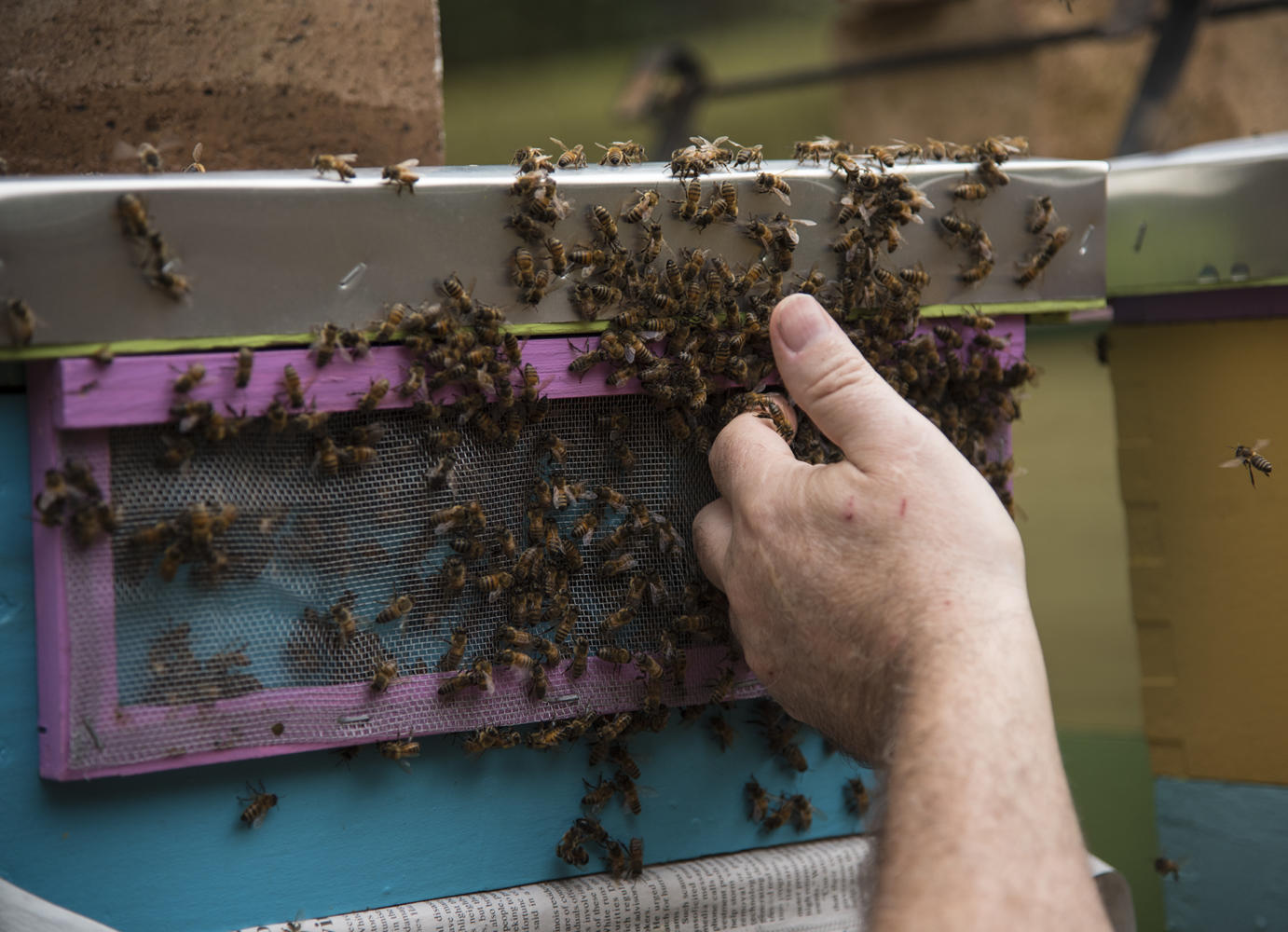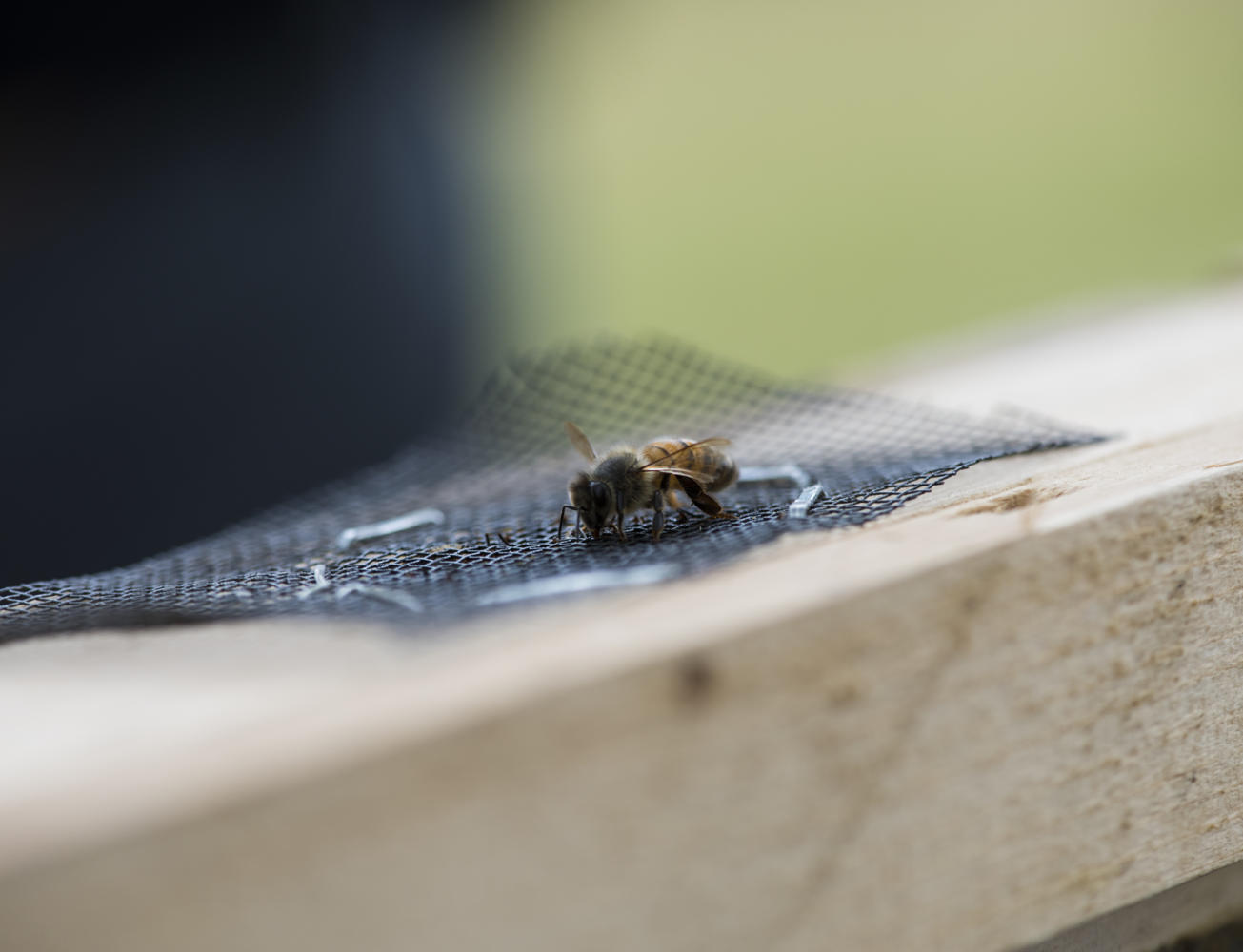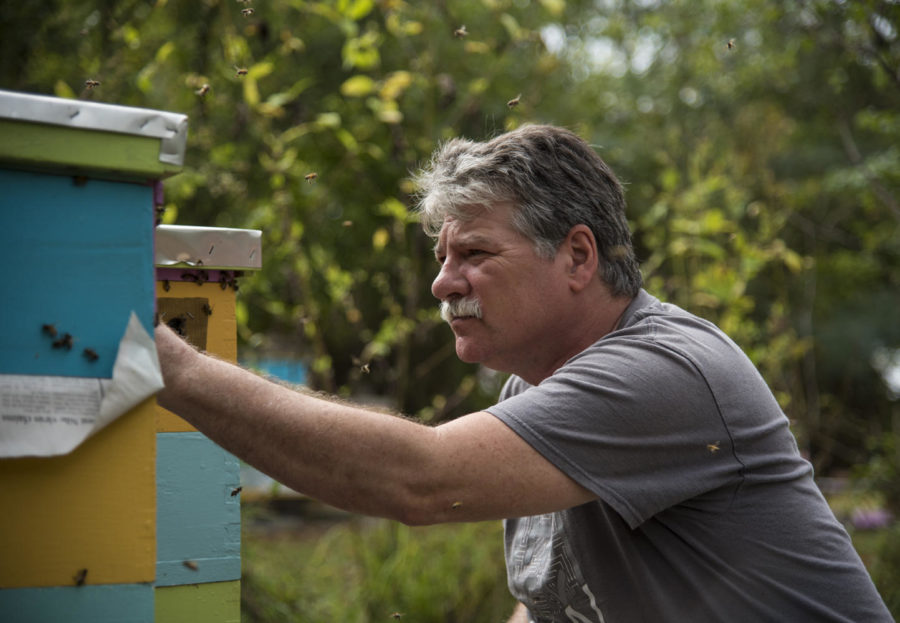What’s all the buzz about? An effort to save the bees and enforce sustainable living
Jess Will of Murphysboro places inspects a host of bees Sunday, Oct. 8, 2017, at Dayempur Farm in Anna. (Athena Chrysanthou | @Chrysant1Athena)
October 11, 2017
On the 100 acres of lush green that makes up Dayempur Farm, thousands of bees buzzed around pastel-colored boxes Sunday afternoon.
That sound might cause some to panic or run, but for the beekeepers on the farm it is a sound that should be celebrated, because the bee population is declining due to harmful pesticides and farming practices, beekeeper Mark Fletter said.
Honeybee communities with five or more colonies went down by eight percent from 2016 to 2015, according to a survey by the United States Department of Agriculture.
Advertisement
“Certainly over the past 20 years or so we have seen a lot of loss in the beekeeping community,” Fletter said. “A lot of beekeepers have lost their bees.”
One of the biggest pests affecting the bee population right now is the Varroa mite, which Fletter said kills honeybees.

Fletter said other challenges bees face are related to large-scale farming practices, which include spraying pesticides on fields, leaving no weeds for bees to pollinate.
“All that can grow on those fields are genetically modified or roundup-ready corn or soybeans,” Fletter said. “There is really no flowers in those hundreds and hundreds of thousands of acres of conventionally managed crop. So we have depleted their natural forage, natural food.”
Fletter organized a three-day beekeeping workshop at Dayempur Farm from Friday to Saturday that featured bee expert and author Michael Bush, who wrote “The Practical Beekeeper: Beekeeping Naturally.”
The workshop addressed topics like queen bee rearing and tips on how to raise healthier bees.
“The bees and the natural beekeeping workshop has been a wonderful way to share with people part of those sustainable living practices,” Fletter said.
Advertisement*
Terry Hickey, the general manager of Dayempur herbals, said the farm is part of a wider community project to encourage people to learn about farming, gardening and connecting with nature.

The medicinal garden Hickey manages produces plant-based medicine that is sold in Illinois, Kentucky, Ohio and Missouri.
“We grow about 50 different medicinal herbs to make medicine,” Hickey said. “It’s plant-based medicine, it’s making use of leaves and roots that have been for thousands of years used to be medicine for people. Everything prior to the pharmaceutical companies.”
Hickey said she believes humans are losing touch with the earth and have grown accustomed to eating processed food, therefore forgetting the necessity of botanical medicine.
“Medical schools used to teach botanical medicine, but the [American Medical Association] came along and said ‘If you don’t stop teaching botanical medicine we will decertify you,’” Hickey said. “So that was where the allopathic medicine and original medicine parted, so botanical medicine lost credibility because it wasn’t industrialized or scientific enough.”
Dayempur Farm has been raising bees for fifteen years, but Fletter said only the last couple of years have been focused on how conventional methods of beekeeping may harm the bees.

Fletter said natural beekeeping is different from conventional beekeeping because it does not require the beekeeper to control what is happening within the hive, and instead allows the bees to develop their own immune and ecosystems to be more in tune with their environment.
Many beekeepers are now on a mission to save the bees, Fletter said.
“While that awareness and intention is fantastic, we also need to acknowledge bees have been on this earth for more than 50 million years,” Fletter said. “Bees are survivors. They know how to survive if we just give them the chance. What we need to do as people is take responsibility for the challenges that we have caused them.”
Editor-in-chief Athena Chrysanthou can be reached at [email protected] or on Twitter at @Chrysant1Athena.
To stay up to date with all your Southern Illinois news, follow the Daily Egyptian on Facebook and Twitter.
Advertisement










